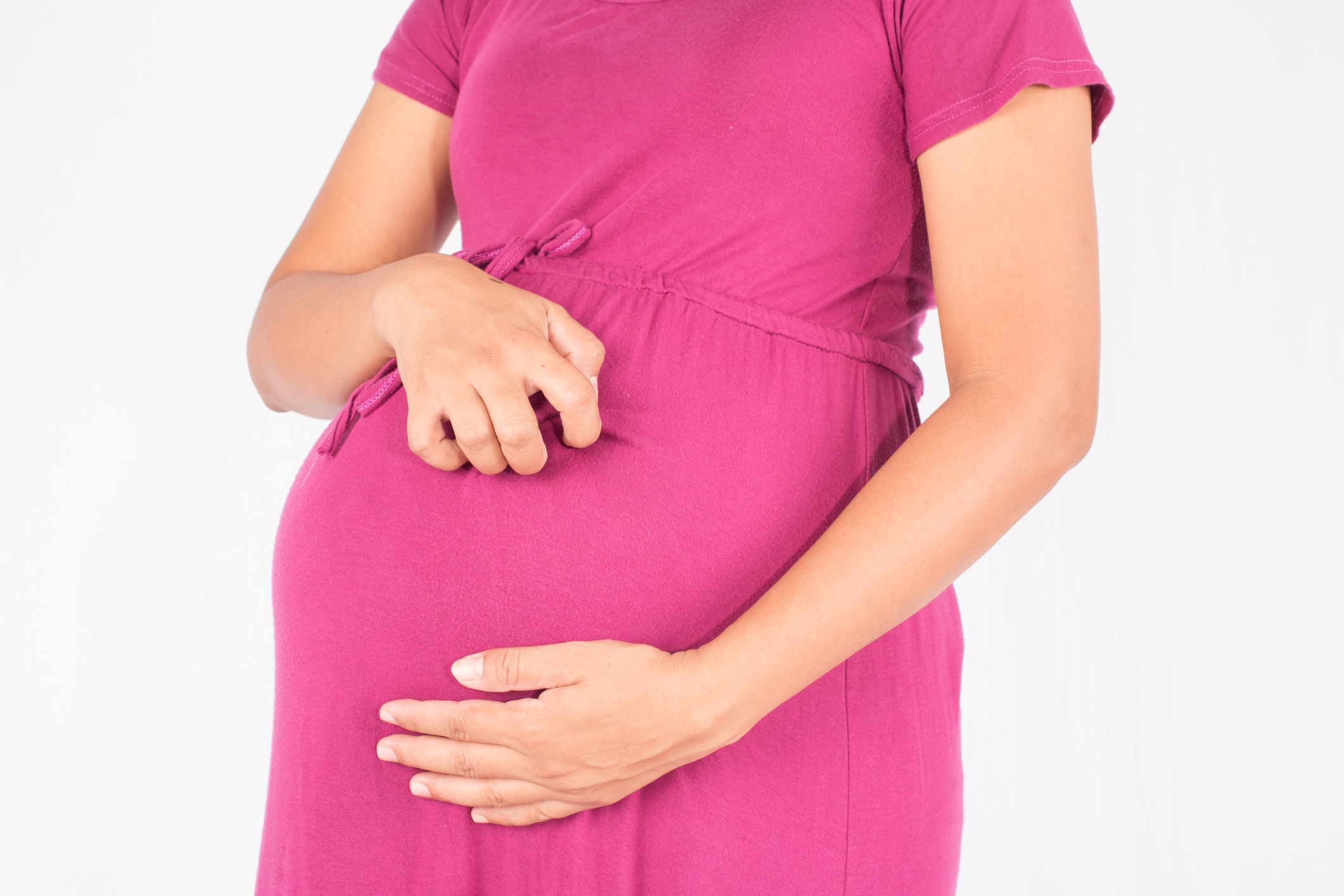Your Complete Guide To Safe Skin Care During Pregnancy
When you first learn you are expecting, it can be both an exciting and overwhelming time. There will be so many changes you will begin to go through mentally and physically well before the baby arrives. Advice will be thrown at you left and right from both loved ones and strangers. But one piece of advice you will want to heed is to carefully consider what you put on your skin and into your body as you grow another human. Keep reading for everything you need to know about safe skin care during pregnancy.
Avoid Endocrine Disruptors:

Endocrine Disruptors are chemicals found in everyday household products including skin care products that can seriously disrupt our bodies. In large enough doses, these chemicals can increase the production of certain hormones while decreasing the production of others. A few of these disruptive chemicals found in skin-care products are parabens whichareused to preserve the products; phthalates which are the fragrances used; BPA which is often found in the plastic packaging; and triclosan which is antibacterial.
Parabens have been found to cause low birth weight in babies, as well as shorten women’s menstrual cycles outside of pregnancy. There is also some research linking phthalates to thyroid dysfunction and endometriosis. Not only should all pregnant and non-pregnant women avoid these chemicals, so should men, as there may also be a link between phthalates and lowered sperm count.
Avoid Skin Irritants:

Sodium lauryl sulfate (SLS) is a chemical found in a wide range of personal care products including shampoo, soap, detergent and toothpaste. While it is a very inexpensive, and effective cleaning and foaming agent, it can seriously irritate skin resulting in eczema, dermatitis, and psoriasis. At the very least, it can cause your skin to be dry, coarse or incredibly sensitive.
During pregnancy, your skin can become quite sensitive, even if it is not usually. But thanks to your changing hormones, your skin, scalp and even gums can become sensitive. Avoid using SLS in all skin-care products as well as in your laundry detergent. Many natural baby products avoid SLS due to the sensitive nature of baby skin, so consider switching to these products during pregnancy.
Avoid Toxins:

Some skin care and cleaning products contain ethoxylated ingredients, which are carcinogens for you and baby. These chemicals can be absorbed through the skin or reach our internal organs when airborne after we clean floors or wash windows. They are also environmental toxins that are leaking into soil and water sources every time these ingredients are washed down the drain. These harmful ingredients often end in -eth (sodium Laureth sulfate), have numbers in the name (polysorbate-20) or may contain the letter PEG (PEG 40). If any of your beauty or cleaning products contain these chemicals, avoid them.
Avoid Synthetic Colours And Petrochemicals:

The jury may be out on whether synthetic colours are linked to harmful side effects as there has yet to be solid research proving this. However, most women tend to put their hair colouring habits and chemical treatments on hold during pregnancy. There is sufficient evidence however to avoid certain petrochemicals known as polycyclic aromatic hydrocarbons, which are cancer-causing chemicals found in crude oil. Petroleum jelly and mineral oil are not considered harmful petrochemicals, however, some women avoid them due to possible contamination from polycyclic aromatic hydrocarbons, which is a known risk.
What To Use Instead:

Go au naturel! When possible, stick to the less is more approach and limit your use of products altogether. Pregnancy may not be the ideal time to begin experimenting with new products or changing up your beauty routine as your body is already undergoing so many changes. But do swap out all chemical-laden beauty products and simplify your routine.
Pregnancy Skin Concern: Stretch Marks

Rub coconut oil or shea butter across your belly and anywhere else you feel yourself growing during pregnancy. This will keep your skin soft and elastic. Also, consider the practice of dry brushing to reduce the appearance of existing stretch marks, but also as a preventative measure. In addition to exfoliating your skin, dry brushing also helps with circulation. Additionally, staying hydrated and eating foods high in antioxidants and omega-3s will help to detoxify your body and replenish your skin’s moisture. Most important however may be your genes. If your mother, aunts, and sisters had stretch marks, you may have a higher chance of getting them as well.
Pregnancy Skin Concern: Melasma

Many pregnant women experience darkening of their skin around their upper lip, nose, cheeks and forehead. Wherever your body is exposed to the sun, such as your arms, legs, and stomach, dark patches can develop. Approximately 70 percent of women develop this type of hyper-pigmentation, however, it should mostly fade after delivery.
A few ways to prevent melasma and protect skin during pregnancy is to wear a high-quality sunblock in addition to chemical-free make-up. Look for a sunscreen with an SPF of 30 or higher with no fragrance or parabens, and wear it every day including cloudy days. Oil and fragrance-free beauty products are less likely to have a negative reaction with the sun. After delivery, if you find the melasma does not seem to be fading, seek out a dermatologist who can prescribe something or offer options involving laser technology.
Pregnancy Skin Concern: Acne

One of the side effects of higher level of hormones during pregnancy is acne. The extra production of oil can trigger a bout of acne not seen since adolescence, or aggravate existing adult acne. Unfortunately, there is no way to stop the production of oil safely while pregnant, so figuring out an effective skin care regime is key. Use a mild cleanser that will not strip your skin dry, which will only further stimulate oil production. When looking for sun cream, moisturizer, and make-up, make sure they are oil-free and labeled "noncomedogenic". Most importantly, do not touch your face or pick at pimples as that will only further aggravate and inflame the skin. Lastly, make sure to eat a clean diet and avoid overly processed foods.
Pregnancy Skin Concern: Itchiness

Itchy skin is one of the most irritating and surprising side effects many pregnant women experiences. It is thought to be caused by the increase of hormones in the blood. As your belly grows, your stretching skin may also become dry, sensitive and itchy. Make sure to keep your skin moisturized and continually hydrate yourself. Wear loose fitting clothes and avoid synthetic materials. Breathable fabrics such as organic cotton will feel more comfortable against youroverly sensitive skin. Adopt a regular routine of dry brushing and moisturizing with products free of fragrance and chemicals.
One form of itchiness not to ignore is persistent itching on palms and soles. This could indicate obstetric cholestasis, which is a liver disorder that endangers the baby. There is a risk of premature delivery or stillbirth, so it is imperative to see your care provider if you begin to suffer from itchy palms and soles.
